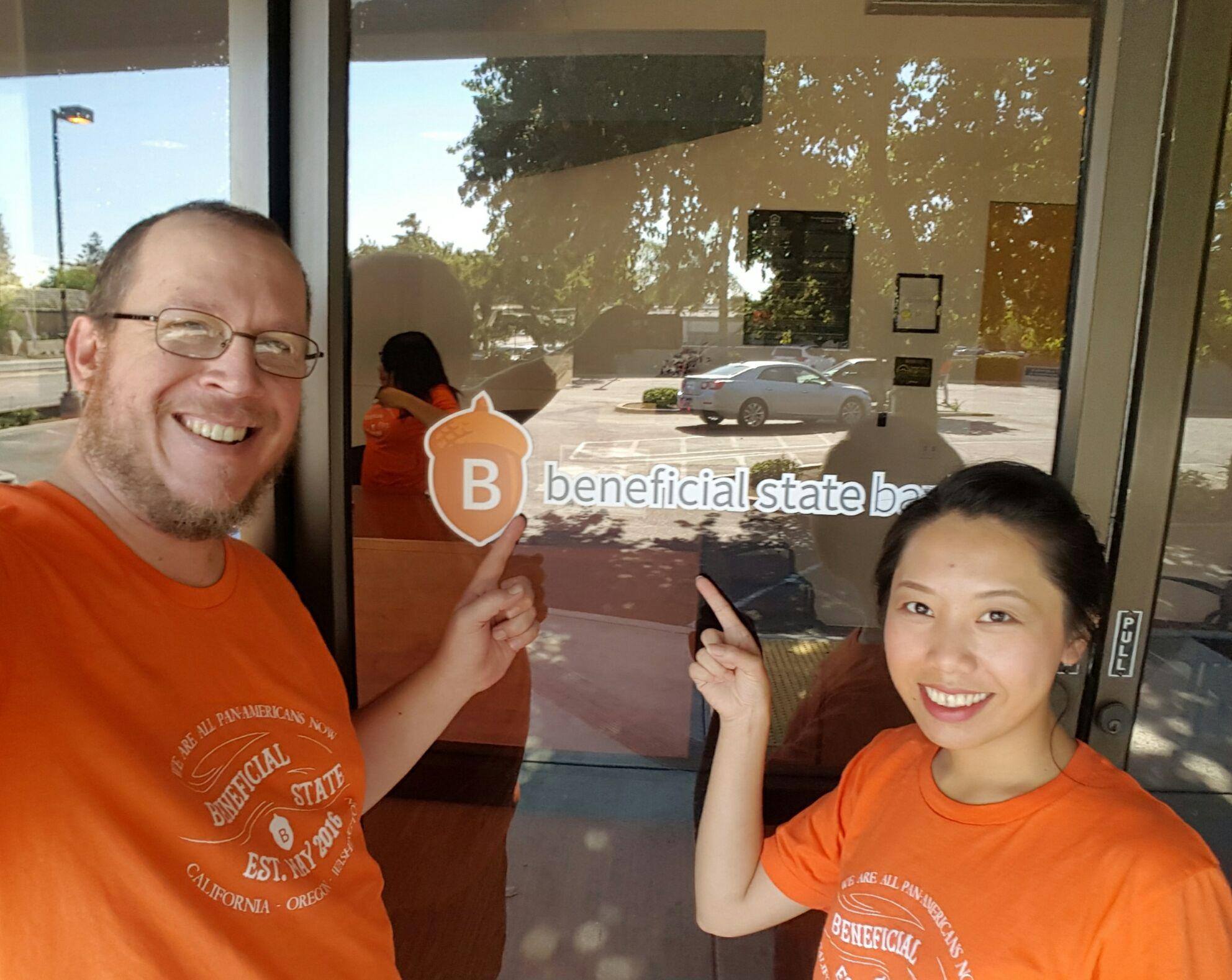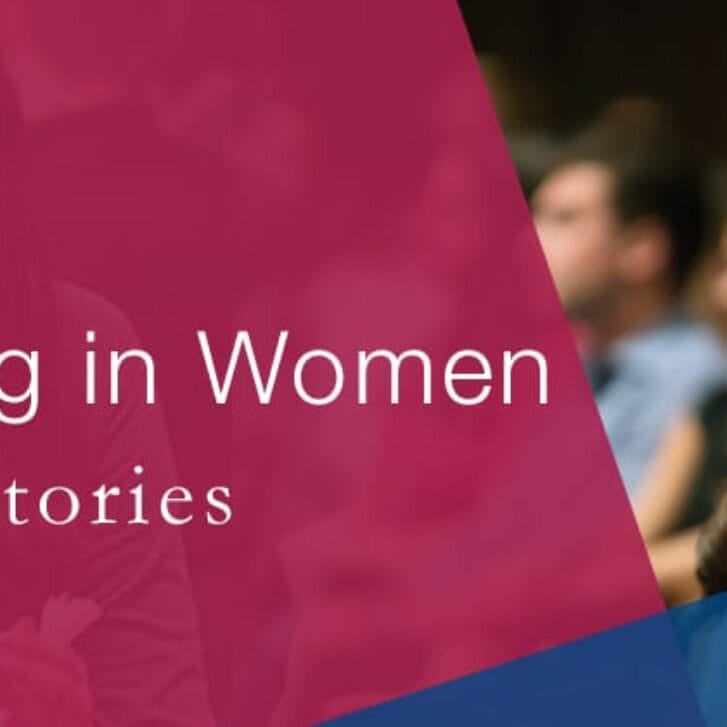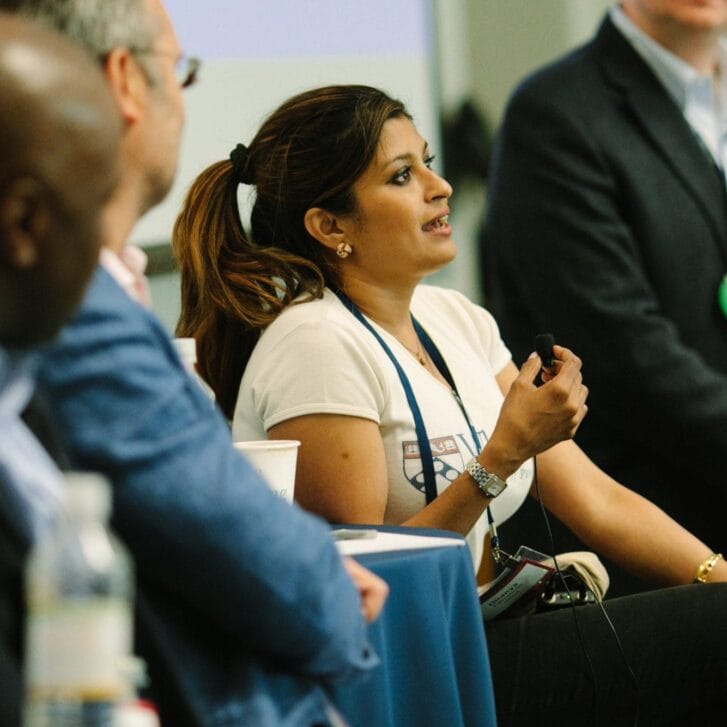This past summer in Oakland, CA, I had an opportunity to work at a bank that is focusing on social justice, environmental resilience, and economic sustainability.
Beneficial State Bank is a triple-bottom-line community development financial institution (CDFI) that was founded during the financial crisis to change the banking system for good.
Learning that Beneficial State Bank is ranked #3 for the highest B Corp impact assessment score in the world from B Lab (based on factors of Environment, Worker, Customers, Community and Governance) made me especially eager to learn how this organization has reached such high levels of impact success while also operating as a profitable bank.
In my position as a loan portfolio analysis and resource intern, I learned that the Beneficial State Foundation owns Beneficial State Bank and 90% of Albina Community Bank. The ownership structure is very interesting because it’s almost unheard of that a nonprofit owns 100% of the economic rights of a bank. This truly shows a locked-in accountability the founders and the community wish to have a more beneficial banking system now and for the future. Currently, Co-CEOs Kat Taylor and Wharton alumnus Dan Skaff, WG’87, are implementing strategies to expand the impact on affordable housing, nonprofits, and renewable energy in underserved communities.
In fact, by my second week of the internship, Beneficial State had already closed a merger deal with Pan American Bank to expand beneficial banking throughout the Central Valley and Los Angeles. I was very excited to hear that no one was fired in an effort to cut costs.
Not only that, but the minimum wage the bank offers is a living wage of $15 (150% of the living wage on the market). As the country is currently pushing for $15 federal minimum wage, it is inspiring to watch Beneficial State pledging for what the community needs and being a great example. Their “walk the talk” strategy is admirable and I would not be surprised to watch them expand greatly within the next 5 years; the bank’s proven social impact model is growing with new and loyal support every day.
My internship this summer gave me a new perspective on the positive social impact that can be created by the business world through finance. Before this internship, my understanding of impact investing was limited to a few forms, such as socially responsible investing (SRI) and social impact bonds. Beneficial State lending to pipelines of mission-aligned organizations and also reinvesting profits into the communities through its foundation.
Beneficial State’s value—trust, justice, and empowerment—align with mine, which made me excited to come to work.
Another terrific part of this internship experience was the weekly speaker series, featuring leaders of many organizations. I had an enriching experience learning more about CDFIs and impact investing. I also benefited from the TomKat Allies network through interactions with other interns at the NextGen Climate, TomKat Ranch, and Radicle Impact (previously known as Eagle Cliff Partners). I felt that this internship program was genuinely trying to develop me as a person by exposing me to various change-maker roles. Now, I feel that I have built a strong network of change-makers I can collaborate with moving forward.
As the youngest intern in my cohort, I took advantage of the opportunity to learn from the college graduates interning at the same time. I found that everyone was seeking fulfillment from working in meaningful social impact areas. As Beneficial State is actively building a pipeline of change-makers through their internship program, I encourage Wharton and Penn undergraduates and Wharton MBA students to explore this amazing internship program.
Michael is a Gates Millennium Scholar from Oakland, CA. He’s currently a junior at the University of Pennsylvania in the Wharton School who actively seeks ways to give back to his community.
Editor’s Note: This article was originally posted on the Wharton Social Impact Initiative’s blog. Read the original post here.


























